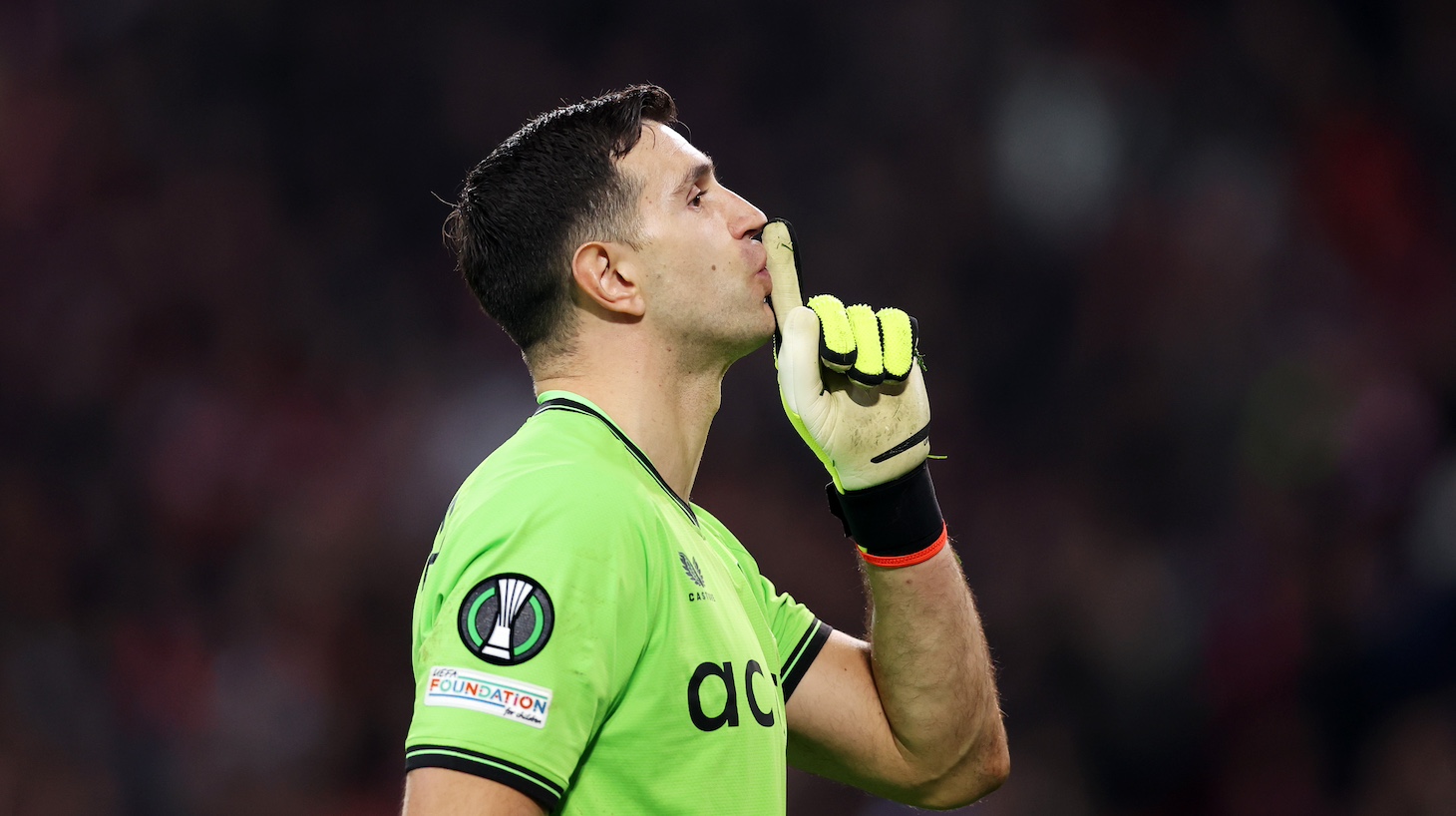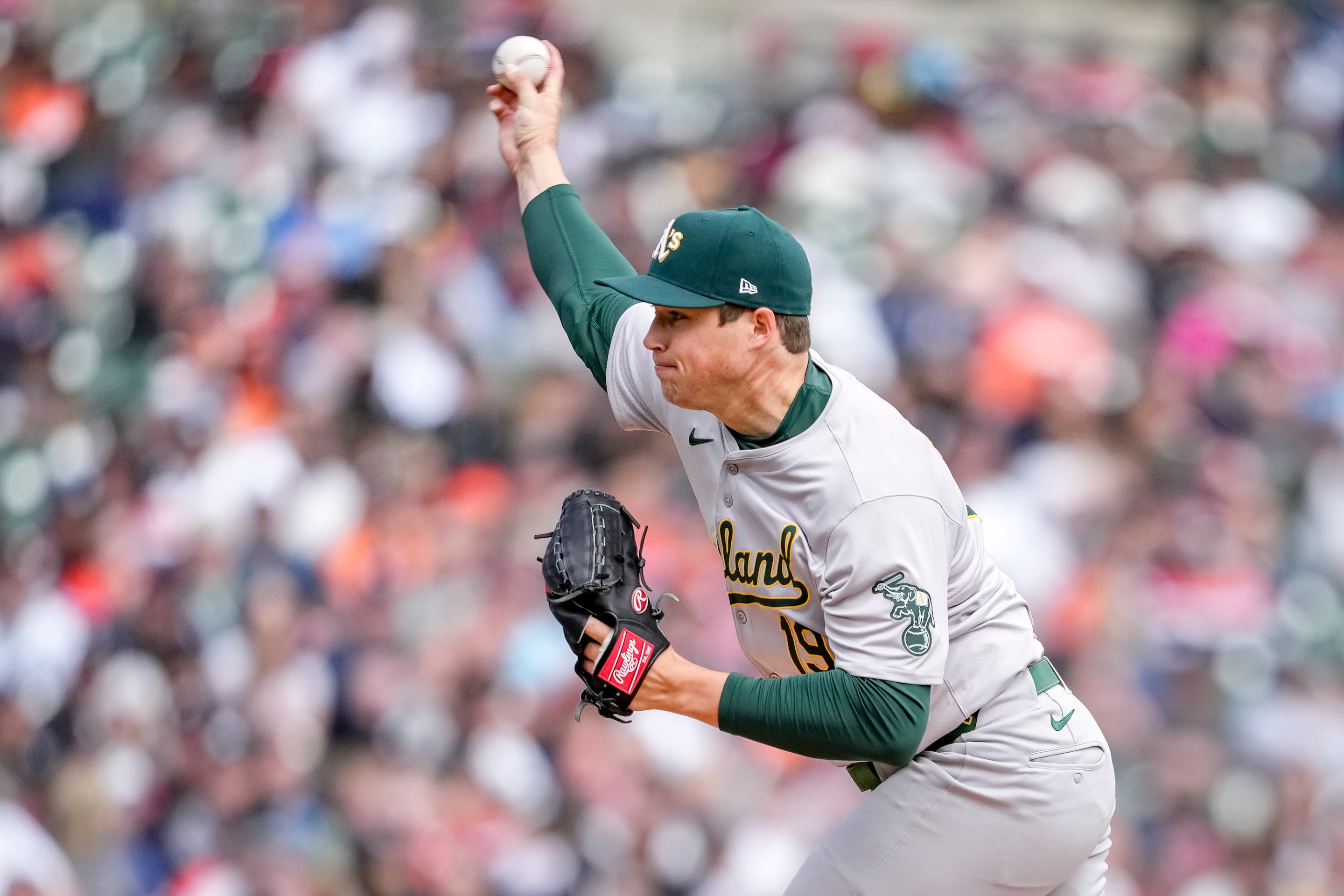These Musicians Are Angry, Organized, And Coming For Spotify
10:06 AM EST on November 29, 2021
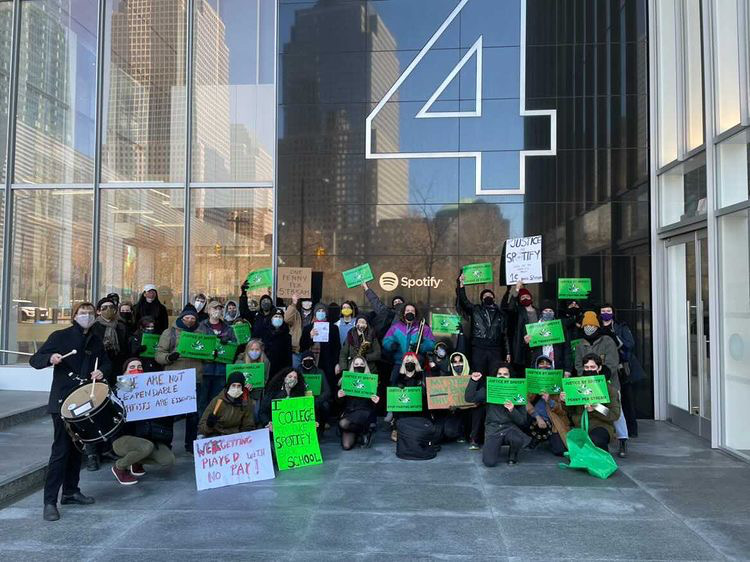
This past spring, a bunch of musicians forced out of work by the pandemic found another way to occupy their time. On March 15, in 31 cities, they held protests against the streaming giant Spotify. In Madrid, Los Angeles, New York, and London, the musicians clattered around outside of Spotify’s cozy offices. They represented a new organization called the Union of Musicians and Allied Workers, or UMAW. They called their actions Justice At Spotify.
“Musicians all over the world are unemployed right now while the tech giants dominating the industry take in billions,” UMAW’s Mary Regalado, of the punk band Downtown Boys, said in a statement. “Music work is labor, and we are asking to be paid fairly for that labor.” UMAW’s activists presented a list of demands to Spotify:
1. Make all closed-door contracts public
2. Show us where your money comes from
And, most prominently:
3. Pay all artists at least one cent per song stream.
According to industry analysts, Spotify’s current payout is around $.0038 per stream.
Out of the New York City action came heartwarming footage of gloved saxophonists and trumpetists happily playing among slogans and posters. “It was cold as hell in New York that day,” says UMAW’s Heba Kadry, a mastering engineer. “It was amazing to see.” Online, over 28,000 music workers signed a corresponding petition of support.
“As far as I know, that’s never been done before,” says UMAW’s Joey La Neve DeFrancesco, Regalado’s bandmate in Downtown Boys. “Musicians collectively organizing towards a private company.” But it was also, DeFrancesco makes sure to point out, an example of old-school labor tactics: “Picket lines. Actually showing up physically to places.”
UMAW was launched in May 2020, at the outset of the pandemic. It never would have formed if COVID-19 hadn’t fundamentally shaken up the lives of working musicians.
“I don’t want to thank the pandemic for anything,” Speedy Ortiz’s Sadie Dupuis says, “but I don’t know how often you wind up emailing with small club musicians who tour constantly. We have had to travel beyond our bodies’ and brains’ limitations for many years, which certainly doesn’t leave time to take on a tech conglomerate.”
UMAW members have seen each other’s homes, their dogs, their children. At least three babies have been born since UMAW formed. But for many UMAW organizers, Dupuis says, the day of the global protest “was the first time they had seen each other not on Zoom screens.”
This December, Spotify will once again fill up social media feeds with the aesthetically pleasing, branded infographics of its year-end Wrapped campaign. Spotify’s a big, splashy, even beloved target—and, perhaps counterintuitively, UMAW has found resonance and success in aiming right at it.
But UMAW was born in the pandemic, and its progress feels fraught. Core UMAW members are spending 10 hours a week in Zoom meetings, says Dupuis, which “become less sustainable once touring resumes.” There's an imperative to create real momentum “before we get sucked into the same unsustainable workload for the same guarantees.”
Since launching in the US in the summer of 2011, Spotify’s self-justifying narrative has been simple.
- In the year 1999, Napster and the MP3 unleashed the piracy that forever broke the traditional model of selling people physical music.
- The music industry was doomed.
- But then Spotify spearheaded streaming!
- People stopped scrounging around the dark recesses of the internet and started paying for music again. Now listeners can access the most expansive music library ever assembled, and musicians get paid.
It’s true, in a way: Since 2014, the once-cracked music industry has seen growth year after year. But what Spotify has managed to obfuscate for nearly a decade is the fact that most musicians aren’t actually making money from Spotify. OK, yes, it’s true, musicians aren’t getting ripped off by piracy any more. Now, UMAW argues, they’re getting ripped off by Spotify.
A few days after the UMAW protests, Spotify published a site called Loud & Clear, offering purported transparency into the process and a defense of its practices. It wasn’t explicitly presented as a response to the UMAW campaign but, DeFrancesco says, “They were worried enough that they had to do this. Otherwise they would just continue to not give a shit. That was heartening.”
UMAW quickly shot back with their own site called Louder & Clearer, where they wrote, “You don't hear us ‘loud & clear.' It is fully within Spotify’s capability to pay music makers more money.”
Since Spotify’s beginning, prominent artists have revealed their Spotify payouts to shock and horror. In 2011, musician Jon Hopkins tweeted, “Got paid £8 for 90,000 plays. Fuck spotify.” In a 2019 survey of professional musicians in the U.K., 82 percent reported netting less than £200, or about $266, from streaming.
In order to stay competitive with the other major streaming platforms, Spotify’s subscription rate has stayed roughly the same for a decade, at around $10 per month. From its very inception, Spotify negotiated secretive, favorable contracts with the major record labels, namely the Big Three: Universal, Sony, and Warner. It had to, because it's the labels, not the artists, who own most of the rights to most of the songs.
There is now a lot of cash to go around. (Analyst estimates say that by 2030, streaming will generate $75 billion annually.) Most of it goes to the labels. In 2018, Music Business Worldwide estimated that the Big Three “generated an average of $19m each day” from streaming.
In 2019, at a tech panel in New York, an independent musician named Ashley Jana asked Jim Anderson, a former Spotify executive, a simple question: Why are Spotify’s per-stream payments so low? “Spotify was created to solve a problem,” Anderson shot back, seething. “The problem was this: piracy and music distribution. The problem was … not to give you money, okay?”
There’s something else nefarious going on with Spotify. It runs in lockstep with the company’s predatory business practices and its collusion with the major labels. I use Spotify, happily, for hours, every single day of my life. I face the unabiding soullessness of a company that just wants me to keep on listening.
Use Spotify enough and you'll eventually meet its algorithms, generating playlists for you, each curated for a specific "mood." Or you’ll eventually be steered towards high-profile playlists like Rap Caviar or New Music Friday, each dominated by major-label content.
Your own playlists are no longer immune from the meddling: You can now click an “enhance” button on playlists you’ve created, and Spotify will automatically pad them out with a new bunch of tracks you never actively asked for. The other day, I got a promotion for a Spotify campaign called "Today’s Top Fans." It asked me to “prove” my “standom” by “competing” with other fans by playing the same songs that they were playing, but more times.
It’s all pushing you to become a passive listener. "Just set it and forget it," says Kadry, the disdain dripping from her voice.
(Just to get this out there at some point, in case Spotify tries to silence me by threatening to leak my habits: Yes, it’s true, I listen to unconscionable amounts of Miranda Lambert.)
The journalist Liz Pelly has become a specialist in brilliantly charting out the overlooked ways that Spotify’s models hurt the listener. In “The Problem With Muzak,” published in The Baffler, she writes about the experience of browsing Spotify: “You will most certainly see something along the lines of ‘Chilled Folk,’ ‘Chill Hits,’ ‘Evening Chill,’ ‘Chilled R&B,’ ‘Indie Chillout,’ or ‘Chill Tracks.’ Spotify loves ‘chill’ playlists: they’re the purest distillation of its ambition to turn all music into emotional wallpaper.”
In “Streambait Pop,” she argues that a toothless new genre has been created in order to fill all these “chill” playlists. These songs “recall aspects of ASMR, with its performed intimacy and soothing voices” and fuel “a self-replicating system that continuously rewards the same styles—the ones that users will stream endlessly, whether they’re paying attention or not.”
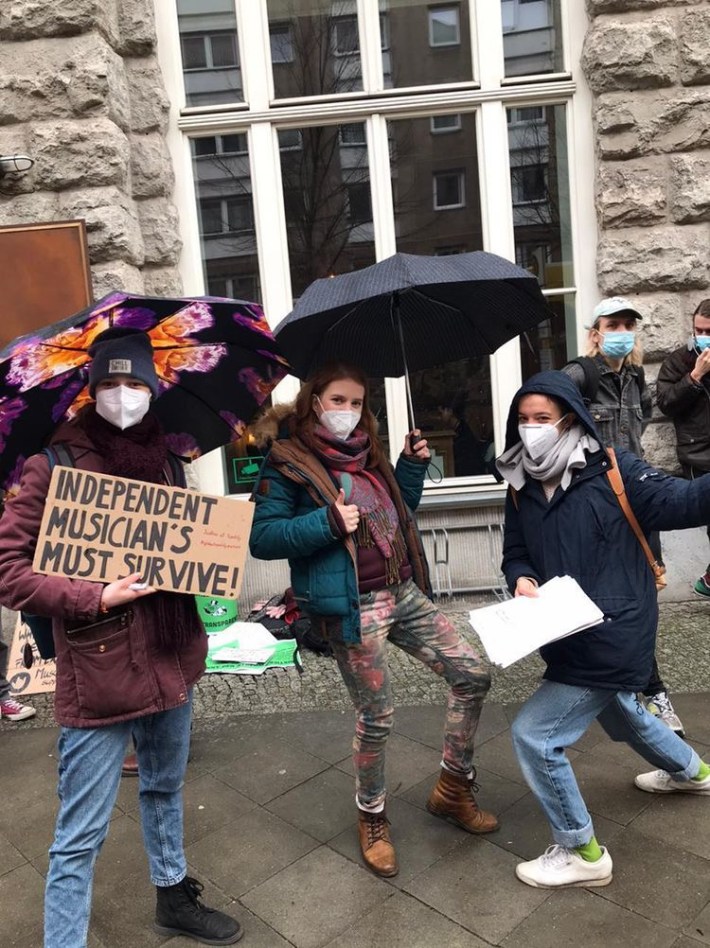
Photo: UMAW
My favorite piece of hers, “Big Mood Machine,” makes the unsettling but convincing argument that, in order to boost the value of the data it sells to brands, Spotify “seeks not just to monitor and mine our mood, but also to manipulate future behavior.”
Pelly says that when selling itself to advertisers, Spotify highlights its ability to be a “positive enhancer.” After an experiment where she listened repeatedly to Spotify’s “Coping With Loss” playlist, Pelly indeed noticed she was served playlists like “Warm Fuzzy Feelings” and “Soundtrack Love Songs.” “Spotify evidently did not want me to sit with my sorrow,” she writes. “It wanted my mood to improve. It wanted me to be happy.”
Spotify Teardown, a wonky MIT Press publication co-written by a group of researchers working in Sweden, echoes that sentiment: Spotify’s content is “rendered intelligible through references to neoliberal and capitalist values of individualism, self-fashioning, and self-responsibility.” Through its playlists, “happiness and an entrepreneurial ethos were promoted as the taken-for-granted ideals toward which users should strive.”
All of which gets to the same central point: Increasingly, Spotify users are not really listening to music. They're listening to Spotify.
Generally, Spotify is not perceived as another socially corrosive tech platform. In part, that’s because Spotify isn’t nearly as large or all-encompassing as Facebook or Google. But it's also because Spotify has invested a lot of time and money—most notably, through the annual Wrapped campaign—in presenting itself as a happy-go-lucky, genuinely-good-for-everyone entity.
For his part, Spotify co-founder and CEO Daniel Ek has successfully avoided drawing the kind of public ire that his fellow tech titans generate daily. But in April, he manifested his own “Bezos goes to space” moment when he decided he couldn’t think of anything better to spend his money on than trying to buy Arsenal. (He led a consortium that bid 1.8 billion GBP, or around 2.5 billion USD. They were rejected, but he promises to keep trying).
And every once in a while, Ek’s humdrum sociopathy creeps out. In 2018, Ek told Fast Company, “You cannot achieve progress without being controversial.” He went on to illustrate his point with a bit of historiography. “Like many people, obviously I prefer being liked than disliked. But someone once pointed out to me, the greatest people through history—you know, Gandhi, John Lennon, Jesus—what do all these people have in common? They all got murdered.”
But as Ek has mostly glided by unscathed, a loose network of voices has built out an expanding body of Spotify criticism. Alongside groups like UMAW and journalists like Pelly, it includes music lawyer Henderson Cole and Tom Gray, of the English rock band Gomez. Gray has had the most tangible success in the streaming wars. It was his 2020 #BrokenRecord Twitter campaign that raised awareness of streaming’s inequities in the UK and encouraged the formation of a Parliamentary committee on the economics of the business.
It was the highest-profile government inquiry in the history of streaming. In December 2020, just a few months into its process, the committee struck an ominous note in a public statement: “We have been told from many different sources that some of the people interested in speaking to us in relation to this inquiry have become reluctant to do so because they fear action may be taken against them.”
Cole, the lawyer, has become well known for a concept he calls the American Music Library, arguably the most altruistic vision to gain traction so far. Many first heard of it in 2019 via Penny Fractions, a newsletter about streaming written by the journalist David Turner. The “government-controlled” AML “will not have algorithms or service generated playlists,” Cole told Turner, “but instead, be a repository for music across the globe. Artists and songwriters would be paid fairly, and no labels, publishers or other industry figures would be able to wield power over the service.” It imagines a service that is everything Spotify is not.
Spotify Teardown has also done a great deal to try and pull off Spotify's friendly mask. (Its lore is bolstered by the fact that Spotify attempted to have the Swedish Research Council cut the project’s funding.) It makes a compelling claim that the company, originally, didn’t care much for music at all.
As Spotify Teardown explains, “Neither of Spotify’s two founders, Daniel Ek and Martin Lorentzon, had experience working with music, neither in the music industry nor even as subcultural enthusiasts. While it is often reported that Ek played the guitar as a child, there is hardly any evidence that music defined his social life as he grew up.”
Both actually came up in the world of advertising technology. In the mid-2000s, Lorentzon’s ad company TradeDoubler acquired Ek’s Advertigo. “This is how Lorentzon and Ek met: two Swedish multimillionaires … both experiencing the boredom that may come with financial independence, as they would later explain. The two decided to start a business together.”
In July 2006, they formed Spotify, "a name without any particular meaning.” The company’s various entities were registered to post-office boxes in Luxembourg and Cyprus, “a classic structure for tax avoidance.” Spotify’s original software relied on a P2P network “to minimize the cost of digital distribution by using extra bandwidth available among the server’s users.” What was actually going to be distributed was, at first, not clear. “The founders presented Spotify as a general ‘media distribution platform,’ indicating that the ultimate aim was to use it for video distribution. However, video demanded much more bandwidth than sound.”
If there's something like a unified goal Spotify's various critics are striving towards, it's a desire for Spotify’s many, many listeners—the company expects 400 million users by the end of the year—to better understand who Spotify's business model benefits. They want people to understand where Kadry is coming from when she says, of Spotify, “These people are vampires. They’ve ruined large swaths of artists’ livelihoods. They don’t know anything about what it takes to make a record. I think it’s fucking evil.”
Joey La Neve DeFrancesco calls me from his Rhode Island home in the middle of an infestation. “Hold on a second," he says. "I’m outside and there’s a giant wasp. Now I gotta move the cats inside. I don’t want the cats to get hit by wasps. Oh, Christ. OK.” His band, Downtown Boys, are excellent agitprop punks. The title of their 2015 sophomore album: Full Communism.
Unlike many in UMAW, DeFrancesco has a background in traditional labor organizing: While working at Providence’s Renaissance Hotel, he helped force through a unionization drive (which ended in victory in 2015). He also has experience in gimmicky labor agitation: When he quit the Renaissance, he did so, to the internet’s approval, with the accompaniment of a marching band.
In its current iteration, UMAW is not legally recognized as a union by the National Labor Relations Board. But the progress has been thrilling. “We’ve had this thing survive and grow for a year,” DeFrancesco says. “We just created this out of nothing, on an email chain.”
Local groups have already formed in New York, Chicago, Los Angeles, and Philadelphia, with possible chapters forming next in Texas and New England. The police abolition subcommittee has successfully donated instruments to incarcerated musicians. Rookie musicians facing down their first contract negotiation can sign up for “office hours” where volunteer lawyers walk them through potential pitfalls.
DeFrancesco says his hotel union experience taught him that “you organize where people are most pissed off. And the absurdity of how much money was going into Spotify—people are so pissed off.” In 2020, Spotify gained 30 million subscribers while seeing its stock value grow relatively more than Facebook, Apple, or Amazon. Both Sony and Universal own Spotify shares.
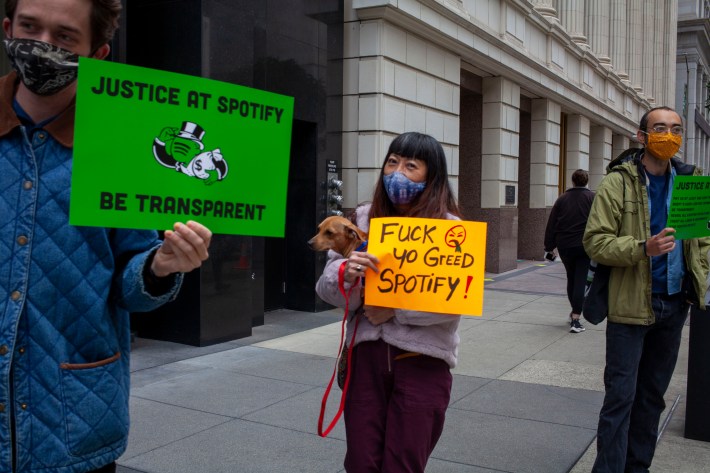
Photo: UMAW
(When I reached out to Spotify to discuss UMAW’s critiques and demands, a rep declined to comment and pointed me to the Loud & Clear website. I asked why Spotify didn’t want to talk about UMAW on the record, but I didn’t get an answer.)
Turner says UMAW oversimplifies the problem. “I mean, the penny-a-stream thing doesn’t make sense.” He argues that Spotify “can’t really fix that”—only the record labels have the power to rip up their exploitative contracts. Furthermore, Spotify is just one of the handful of major streaming platforms. Forcing it to reform wouldn’t change Apple Music or Amazon Music’s similar behaviors. But, Turner says, the oversimplification is a key to the Justice At Spotify’s campaign’s surprising vibrancy.
Streaming rights “are really complicated because the music industry has made it really complicated,” he reminds me. UMAW’s campaign is effective because it “doesn’t shame you for not understanding the issue. It yells at the right people. It tells you to get mad. You should get mad!”
DeFrancesco agrees. “Like any other labor campaign, it’s not like people need to understand the intricacies of the payment model,” he says. “We know they have money and we’re not getting it. Our position”—he laughs—“is pay us more.”
Quickly, UMAW has found powerfully friendly ears. In June 2021, after consulting with UMAW, the U.S. House Judiciary sent a letter to Spotify targeting one of its problematic policies, a tool called Discovery Mode. Critics said it was a new-school form of old-school payola. Speaking anonymously, a former Congressional staffer involved in the House Judiciary process with UMAW says, “What they were able to accomplish” within a year of lobbying is "very impressive. A letter is huge.”
As I learn more about UMAW, and drop in on weeks of meetings, I come to feel it has that gently conspiratorial vibe of the kitchen at the off-campus anarchist party house. When I ask to sit in on one UMAW-sponsored meeting, about making venues safer, I’m asked to “officially” answer a simple question: “You're not a cop, right?! :)”
Despite their quick successes in the streaming wars, the Justice At Spotify subvenue meetings are similarly punchy. One quickly deviates into meandering riffs. About '70s radio-friendly white-boy funk. About the particular strangeness of slang in England.
It’s hard to imagine how a massive coordinated day of global protest and congressional action came out of this jolly hang. Then, quickly, the meeting takes on weight. Plans are afoot for a public UMAW sit-down with a prominent progressive congresswoman. Specifics need to be hashed out. Who’s reaching out to the experimental electronic musician from Michigan? Who’s reaching out to the popular Marxist YouTuber?
On the Zoom there are mustaches, some thin and some thick and some long, and there are ballcaps, and almost everyone is in T-shirts, almost all of them are black. People are in their bedrooms. Some people are literally in their beds. The vibes are chill. Possibly, probably, by design, it doesn’t feel like an upheaval. They do this every Tuesday night.
In July, the U.K. Parliamentary committee on streaming published its full report. The takeaway was crisp and clear and devastating. “Streaming has undoubtedly helped save the music industry following two decades of digital piracy but it is clear that what has been saved does not work for everyone,” the committee wrote. “Streaming needs a complete reset.”
In its summary, the committee bored down on a few critical demands. They included “fair and transparent algorithms and playlisting,” “revenue parity for songwriters and composers,” and “equitable remuneration.” It’s a mundane term for what would, in actuality, be a sea change: Theoretically, equitable renumeration could mean a brand-new royalty payment enforced on the streaming companies. More money for artists per stream, regardless of exploitative label deals.
At the first Justice At Spotify meeting after the release of the U.K. report, the Zoom is rambunctious. “Full house tonight,” gray-haired shoegaze legend Damon Krukowski says, before leading a summary of the big points. Their general takeaway is clear, too: “We can reformulate our own demands with this support. We can use this.” Tonight, at least, they feel a little bit closer to a fairer landscape. Can they go beyond House Judiciary letters? Can they agitate for a full House commission into streaming? Is it possible?
Soon after, Krukowski politely asks me to leave. UMAW has received some information “in confidence” from another streaming platform friendly to their aims. They need to dig in to the secret stuff.
In the days after the release of the U.K. report, I ask Turner, the longtime observer of the streaming wars, what happens next. “I won’t speak for anybody else,” Turner tells me, “but I’m not taking a breath. Right now, this U.K. report is out—it’s fucking foot on fucking gas. Shit is foot on gas.”
If you liked this blog, please share it! Your referrals help Defector reach new readers, and those new readers always get a few free blogs before encountering our paywall.
Stay in touch
Sign up for our free newsletter
